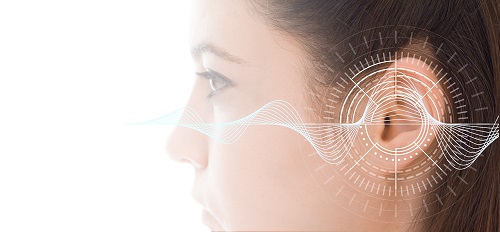Harness the Power of Sound to Maximize Your Productivity
Dr. Sanjay Jain|February 7, 2020

As you read this, I bet you’re creating an internal dialogue in your mind.
Are you reading this in your own voice? Or are you imagining what I sound like when I talk?
Even those who lose the ability to hear maintain internal sounds that continue to operate as a personal “inner voice.”
Sounds affect just about every aspect of our lives.
And different sounds – even when they’re intended to do the same thing – can lead to very different results.
Take the humble alarm clock, for instance.
Does yours play a local radio station that you like to wake up to? Do you have a set song in the queue every morning? Or does it blast out a shrill beep, beep, beep?
What sounds you wake up to might feel like an inconsequential decision…
But research out of RMIT University in Australia suggests otherwise.
The researchers’ findings, which were published in the peer-reviewed journal PLOS ONE, found that the sounds that wake us up can have a significant impact on our how alert we are in the morning.1
And that impact isn’t necessarily what you would have guessed.
Being groggy in the morning (known as sleep inertia) was found to be much more prevalent in those who were startled awake by a screeching alarm clock.
On the other hand, those who woke to a more pleasant, melodic sound were performing at optimal levels much more quickly.
The study concluded that loud, harsh noises disrupt or confuse the brain during the process of waking up.
But being awoken by something more pleasant, like the Beach Boys’ “Good Vibrations” or chirping birds, is much better at helping us effectively transition to a waking state.
It’s a perfect example of the impact sound can have on our bodies and how we can harness its effects to optimize function.
We Are All Conductors of Sound
The body is 60% water.
And sound waves are very good at traveling in water.
The sounds whales make, for instance, have been documented to travel thousands of miles without losing energy.2
In other words, we are well-suited for sound to be conducted throughout our bodies.
So it’s no wonder it can have such a dramatic impact on them…
Sound is our primary sensory function for identifying dangerous situations.
Those things that go bump in the night cause the release of the stress hormone cortisol.3
Same goes for the unexpected backfire of a car. These unexpected sounds can also cause blood pressure spikes, increased heart rate and fast breathing.
But it’s not just the suddenness of sounds that can trigger these effects.
Just regularly exposing the body to loud noises can have damaging effects on the ears and increase blood pressure.4
But it’s not all doom and gloom.
We can also use the power of sound to make ourselves more productive and effective.
Have Headphones, Will Travel
If you’re anything like me, you like to listen to music when you exercise.
It helps take my mind off slogging away on the treadmill.
What I didn’t realize was that I might be listening to the wrong type of music…
New research published in the journal Frontiers in Psychology found that listening to upbeat, fast-tempo music was an effective way to optimize certain exercise routines.5
Listening to up-tempo music (between 170 and 190 beats per minute) was found to significantly increase the effects of working out when paired with endurance or cardio exercises like walking or jogging.
It turns out that when we listen to upbeat music, the brain isn’t as attuned to the level of exertion we’re putting in. So that makes working out feel like it takes less effort.
This allows us to run faster for longer periods of time.
Now, this isn’t the first study to point out that music can help distract us from our workout and actually make it feel more fun.6
What’s unique about these findings is that the study specifically found fast music to have a noticeable impact on speeding up the heart rate…
And a higher heart rate for otherwise healthy adults results in a more efficient workout with more beneficial results.7 And the workout doesn’t need to last as long.8
That being said, fast-paced songs weren’t found to have the same impact on all types of exercise.
For instance, upbeat pop songs weren’t very helpful to those who were engaging in more strenuous activities like lifting weights, which makes sense because this usually consists of slow, repetitive movements.
But anytime you want to get your heart pumping and optimize your cardio workout session, put on your headphones and let the music take over.
References
- https://journals.plos.org/plosone/article?id=10.1371/journal.pone.0215788
- https://oceanservice.noaa.gov/facts/sound.html
- https://www.ncbi.nlm.nih.gov/pubmed/12689472
- https://www.lhsfna.org/index.cfm/lifelines/october-2014/noise-harmful-to-hearing-harmful-to-blood-pressure/
- https://www.frontiersin.org/articles/10.3389/fpsyg.2020.00074/full
- https://www.ncbi.nlm.nih.gov/pub
- https://www.hopkinsmedicine.org/health/wellness-and-prevention/understanding-your-target-heart-rate
- https://www.health.harvard.edu/exercise-and-fitness/interval-training-for-a-stronger-heart



